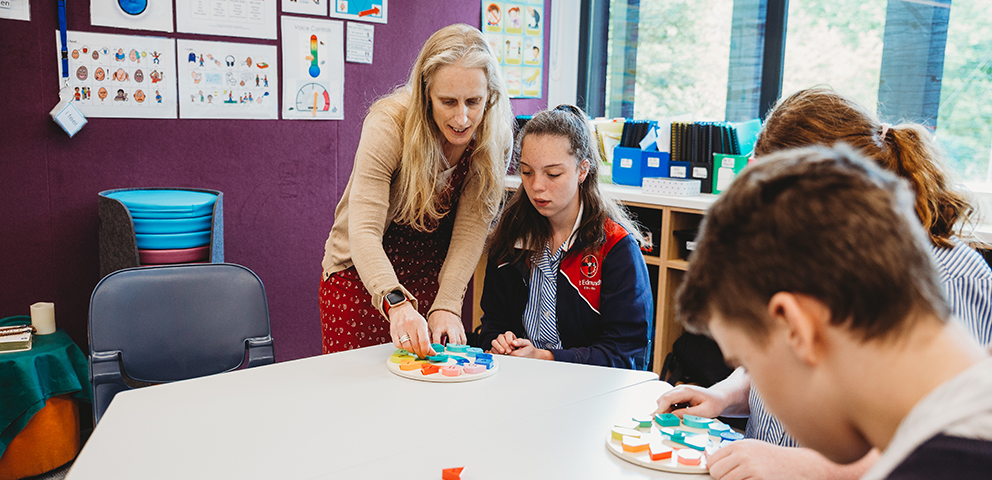
The mathematics program is designed to build students’ confidence and competence in using mathematics and numeracy in everyday contexts, starting with the foundational skills introduced in primary school. The program supports the development of essential numeracy skills such as counting, measuring, estimating, and interpreting data, that students need to make informed decisions in daily life. It fosters students’ ability to communicate using the language of mathematics while developing understanding, fluency, and problem-solving strategies. Each mathematics lesson includes additional staffing to provide explicit, targeted intervention, ensuring all students’ learning needs are met. Through a hands-on and engaging approach, students make meaningful connections between mathematical concepts and real-world applications, supporting their independence and lifelong learning.
Stage 3 investigate:
Stages 4–5 (Years 7–10)
In Stage 4 and 5, students explore a broad range of mathematical areas, including:
Financial Mathematics is a major focus from Stage 4 onwards. Students develop the ability to:
Hands-on learning experiences include:
These activities help students apply their learning in real-world contexts and build independence in practical mathematical skills.
In the senior years, the program continues to develop students' understanding of how mathematics applies in post-school contexts. Students focus on:
Financial Mathematics remains a core component. Students engage in:
Further learning of Mathematical concepts involving time, measurement and statistics includes:
All students participate in the Mathematical Assessment Interview (MAI), a diagnostic tool that identifies strengths and challenges in numeracy areas such as:
Growth point data from the MAI informs targeted interventions using group work, manipulatives, visual aids, and technology to support individual learning needs.
Students have access to the Mathletics platform, which supports both classroom and at-home learning. Teachers assign personalised tasks and monitor progress, while students are motivated through certificates awarded in class and at assemblies.